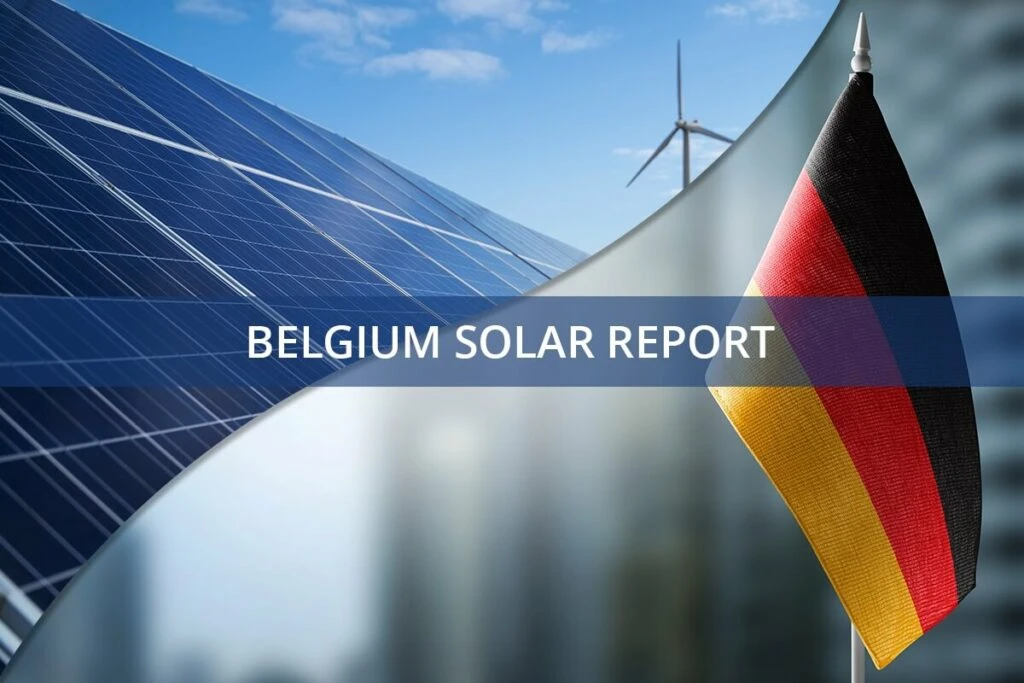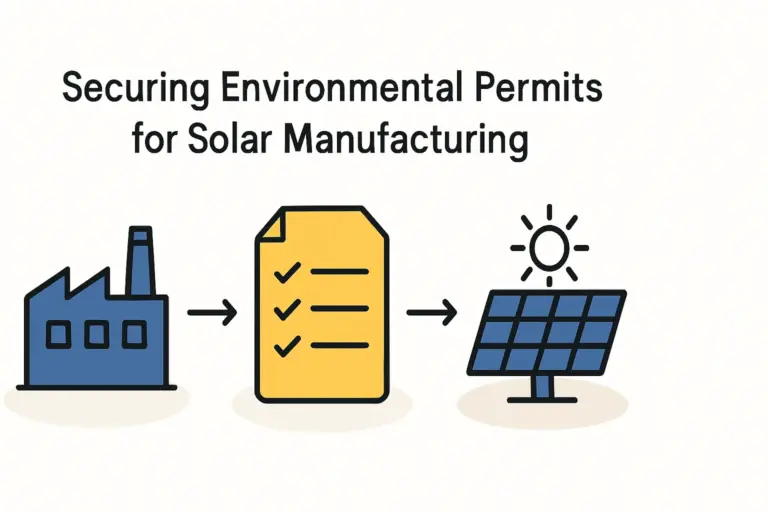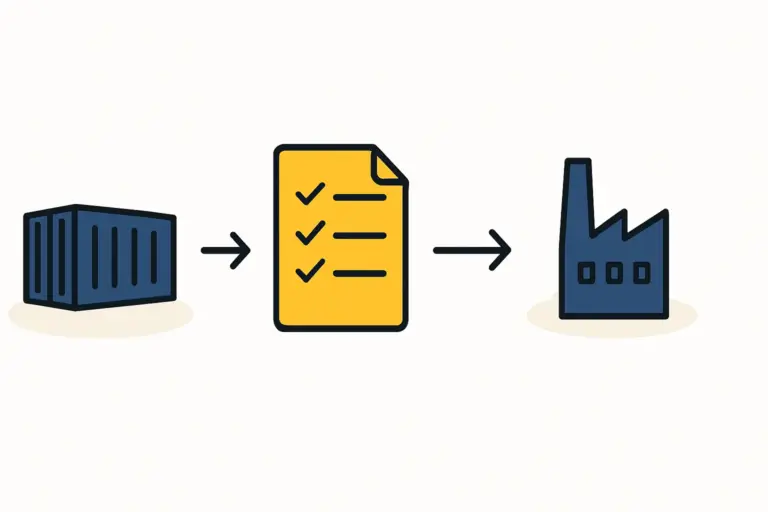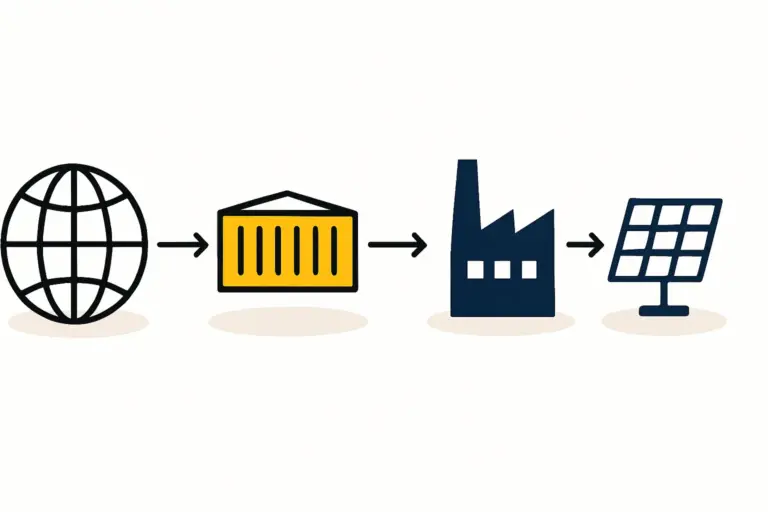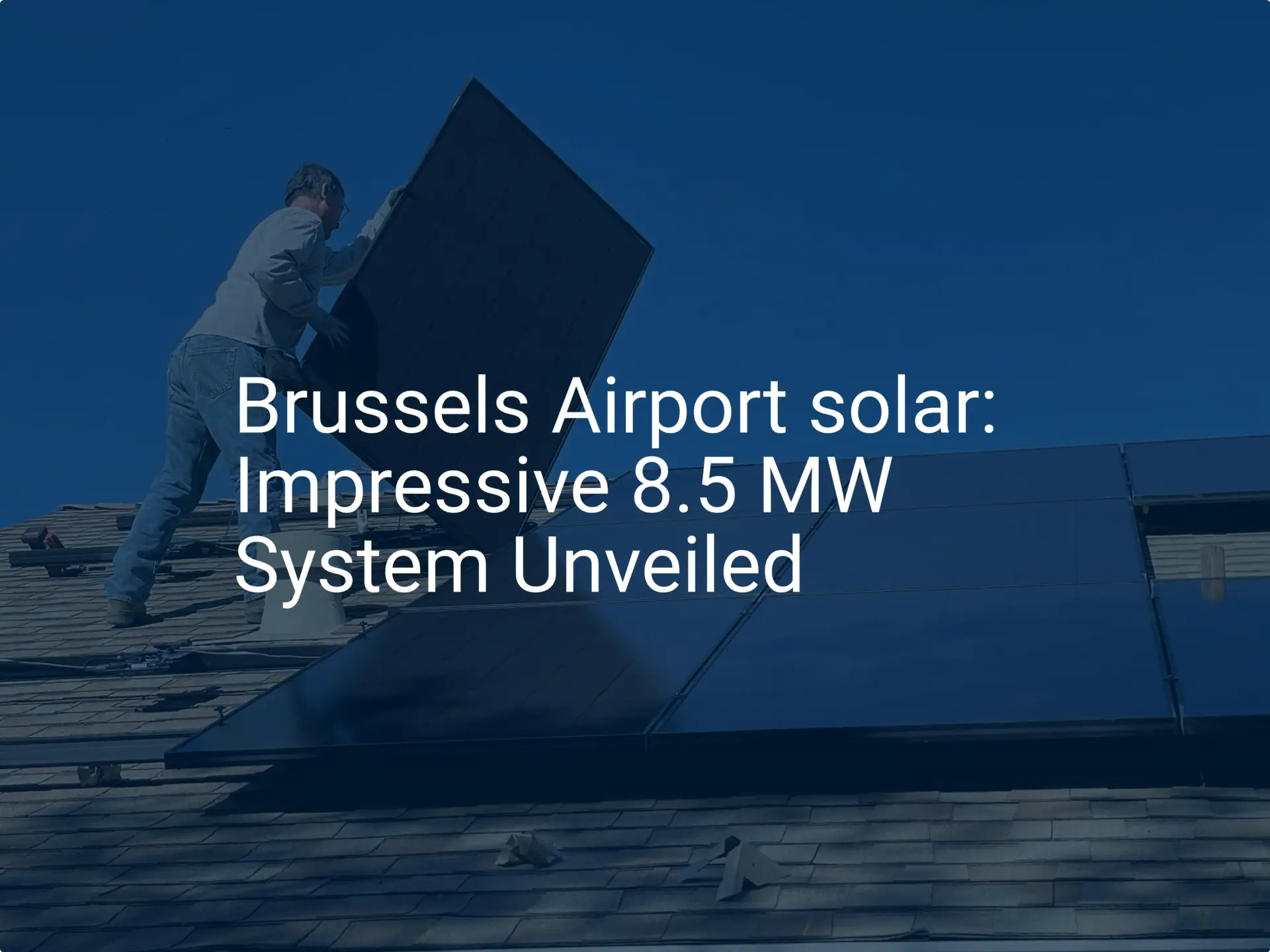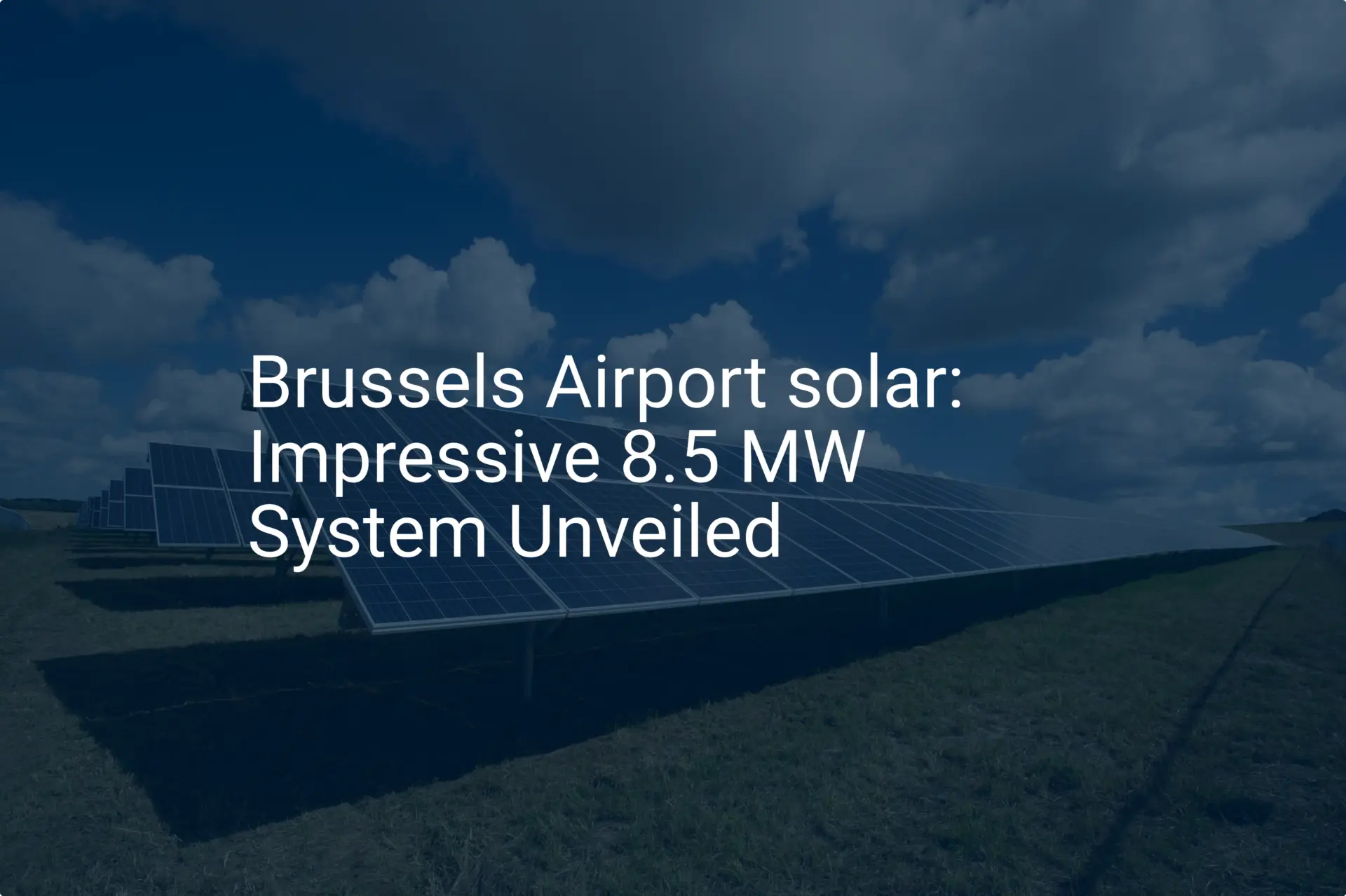Launching a solar module production facility is a significant undertaking. While machinery and infrastructure are critical, the operation’s long-term success ultimately hinges on a more complex element: its workforce.
For an entrepreneur considering Belgium as a manufacturing base, its location at the heart of Europe is a compelling advantage. However, building a sustainable and productive team requires a nuanced understanding of the country’s labor market.
This analysis examines the availability, skills, training infrastructure, and cost structures involved in sourcing talent for solar module production in Belgium, helping business leaders navigate the opportunities and challenges of this high-potential, high-cost environment.
Table of Contents
The Belgian Labor Landscape: A High-Level Overview
For industrial investors, Belgium is a country of contrasts. It has one of the highest labor costs in the Eurozone, driven by significant social security contributions and an automatic wage indexation system. This system, which adjusts salaries according to the health index, creates a cost structure that demands careful financial forecasting.
Yet, this high cost is offset by a highly productive, well-educated, and multilingual workforce. The country has a strong tradition of industrial manufacturing. Even as some traditional sectors have declined, this history has left behind a pool of talent with transferable skills in mechanics, electronics, and process management.
Key characteristics include:
- Strong Union Presence: Labor relations are highly structured and regulated, with collective bargaining agreements playing a central role. Engaging with social partners isn’t optional; it’s a fundamental part of doing business.
- Regional Autonomy: The country is divided into three distinct regions—Flanders, Wallonia, and Brussels-Capital—each with its own government, economic development agencies, and employment services. This means strategies, incentives, and talent pools can differ significantly over short distances.
- High Skill Level: The workforce is widely recognized for its technical proficiency and problem-solving abilities, a testament to a robust educational and vocational training system.
Identifying the Right Skills for Solar Module Production
A semi-automated solar module factory doesn’t necessarily require a team of photovoltaic engineers. It needs a core group of reliable, technically adept people who can be trained on specific processes. The essential roles and skills are surprisingly similar to those in other advanced manufacturing sectors.
A typical 20-50 MW production line might require 25-30 employees across several key functions:
- Machine Operators: People with experience operating automated machinery, performing routine checks, and identifying minor faults. A background in CNC operation, textiles, or food processing can be highly relevant.
- Maintenance Technicians: Technicians with electromechanical skills are vital for ensuring uptime. They handle preventive maintenance, troubleshooting, and repairs on equipment like stringers, laminators, and testers.
- Quality Control Inspectors: This role requires detail-oriented staff to perform visual inspections, manage electroluminescence (EL) and IV testing, and ensure every module meets stringent certification standards.
- Logistics and Warehouse Staff: These teams manage the intake of raw materials (glass, cells, backsheets) and the storage and shipment of finished modules.
The labor requirements for a solar module factory are well-documented. Fortunately for an investor in Belgium, the decline of certain industries means that workers with these exact proficiencies are often available.
Regional Analysis: Where to Locate Your Facility and Find Talent
The choice between Belgium’s primary industrial regions, Flanders and Wallonia, comes down to balancing infrastructure, cost, and talent availability.
Flanders: The High-Tech Logistics Hub
The northern, Dutch-speaking region of Flanders is an economic powerhouse. It hosts the Port of Antwerp-Bruges, one of Europe’s largest, offering unparalleled logistics for importing raw materials and exporting finished goods.

The region has actively cultivated a high-tech ecosystem, with world-renowned research centers like IMEC in Leuven driving innovation in semiconductors and photovoltaic technology. This fosters a culture of technical excellence and a steady supply of highly qualified graduates.
The regional employment agency, VDAB, along with a network of “Syntra” training centers, offers specialized technical courses that can be adapted to the needs of new industries. However, this high level of development comes with higher operational costs in both wages and real estate. Competition for skilled technical labor can also be more intense.
Wallonia: Industrial Heritage and Renewal
The southern, French-speaking region of Wallonia has a deep industrial history rooted in coal and steel. While it has faced economic challenges, it is now undergoing a government-supported revitalization, often called the ‘Marshall Plan for Wallonia,’ which focuses on creating new industrial clusters in fields like biotech, aerospace, and green technology.

For a new PV manufacturer, Wallonia offers several advantages:
- Lower Operating Costs: Labor and land costs are generally lower than in Flanders.
- Available Workforce: Regional unemployment is historically higher, creating a larger pool of available labor with traditional industrial skills ready for retraining.
- Strong Government Support: Significant incentives, grants, and support programs are often available for new industrial projects that create local jobs.
For an investor, this lower operational profile can help offset the total investment costs of a solar panel factory. The regional employment service, Le Forem, is a key partner in developing tailored training programs for the renewable energy sector, helping upskill the local workforce for specific PV manufacturing roles.
Training and Upskilling: Building Your Team from the Ground Up
Even with a skilled labor pool, no new hire will arrive with direct experience operating your specific production line. A structured in-house training program is therefore non-negotiable.
Guidance from experienced engineering partners is invaluable during this phase. Drawing on experience from turnkey projects in Europe and beyond, a well-designed training plan typically involves:
- Core Team Training: A small group of key personnel, such as a production manager and lead technician, often travels to the machine manufacturer’s facility for intensive training.
- On-Site Commissioning: During the installation and commissioning of the production line, the equipment supplier’s engineers work alongside the local team, providing hands-on instruction.
- Process Optimization: After startup, continuous training is needed to optimize throughput, reduce defect rates, and embed quality control standards in the daily workflow.

This structured approach ensures that staff not only learn to operate machinery but also truly understand the manufacturing process, empowering them to solve problems independently. This foundational knowledge is crucial for any entrepreneur looking to start a solar module manufacturing business.
Navigating Labor Costs and Regulations
The complexity of Belgian labor law cannot be overstated. An entrepreneur must plan for:
- High Social Security Contributions: Employer contributions are substantial and represent a major part of the total labor cost.
- Collective Labor Agreements (CLAs): Sector-specific agreements dictate minimum wages, working hours, and other conditions. PV manufacturing would likely fall under a general manufacturing or electronics sector CLA.
- Strict Termination Procedures: Regulations governing dismissals are rigid and can be costly if not followed precisely.
Engaging local legal and HR consultants early in the planning process is not an added expense but a critical risk-mitigation strategy. These professionals can provide precise cost simulations and ensure full compliance, preventing costly missteps.
While the costs are high, the framework is predictable, which allows for accurate long-term business planning.
Frequently Asked Questions (FAQ)
Q: What kind of technical background is essential for line operators?
A: A formal degree is rarely necessary. An ideal candidate has experience in a manufacturing environment and demonstrates mechanical aptitude, attention to detail, and the ability to follow standardized processes. Experience with automated machinery in any industry is a strong asset.
Q: How do labor costs in Belgium compare to Germany or Eastern Europe?
A: Labor costs in Belgium are among the highest in Europe, generally exceeding those in neighboring Germany and France. They are significantly higher than in Eastern European countries like Poland or Romania. This premium must be weighed against factors like productivity, logistical efficiency, and proximity to key Western European markets.
Q: Are there government subsidies for hiring or training staff in Belgium?
A: Yes, both the Flemish and Walloon regional governments offer various incentives. These can include reductions in social security contributions for certain categories of new hires (e.g., long-term unemployed, young workers) and subsidies for approved training programs. These programs are dynamic, so consultation with regional development agencies like Flanders Investment & Trade (FIT) or the Wallonia Export-Investment Agency (AWEX) is essential.
Q: How long does it typically take to train a new team for a module production line?
A: A core team can achieve basic operational competence within four to six weeks of intensive on-site training during line commissioning. Reaching optimal efficiency and fully embedding quality assurance protocols across the entire staff typically takes three to six months of continuous operation and reinforcement.
Conclusion: A Strategic Choice Requiring Expert Guidance
Belgium presents a compelling case for establishing a solar module factory. Its strategic location, world-class logistics, and highly skilled workforce provide a solid foundation for serving the demanding European market. The R&D environment, particularly in Flanders, offers proximity to cutting-edge innovation.
These advantages, however, are paired with significant challenges—namely, high labor costs and complex regulations. Success in this environment depends on meticulous planning, a deep understanding of regional differences, and a proactive strategy for workforce training.
International investors can navigate this landscape most effectively by working with partners who combine technical expertise in photovoltaics with practical experience establishing manufacturing operations in the European context.

